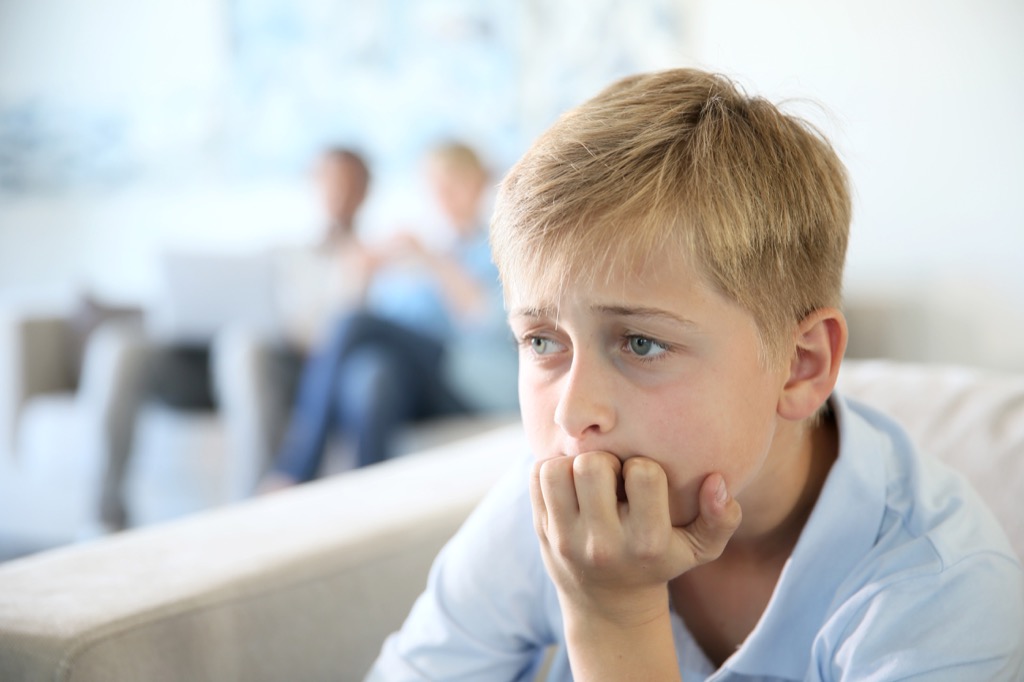Are your children anxious? Children as young as five are presenting for treatment showing signs of anxiety and stress. But how much of it is linked to behaviours exhibited by their parents? Clinical psychologist Dr Quratulain Zaidi of MindNLife Hong Kong looks at the issue in parents and children and some steps that can be taken to manage it.
“I see many patients (adults, teens – even children as young as five) who suffer with anxiety. They have a fear of the unknown, and are convinced something bad is going to happen. They strive for perfection, and worry excessively about many things, such as peer relationships, or not being good enough or smart enough. They seek constant approval and reassurance from others. If it’s a child, more often than not, their parents will also come forward and seek help for their own anxiety. Without fail, these parents all ask me the same question: did I pass my anxiety on to my kids?
Anxiety disorders are the most common mental illness, affecting 40 million adults in the United States alone – about 18 percent of the population. These disorders affect one in eight children, and research shows that untreated children are at higher risk to perform poorly in school, miss out on important social experiences, and engage in substance abuse. Unfortunately, anxiety disorders also often co-occur with other disorders such as depression, eating disorders, and attention-deficit/hyperactivity disorder (ADHD).

Role models for fear
Anxiety disorders develop from a complex set of risk factors, including genetics, brain chemistry, personality and life events, making it difficult to point the finger at any one cause. Nonetheless, the transmission within families is well recognised, though the underlying processes are poorly understood. The powerful effect of modelling likely plays a more important role in how children behave and learn to cope, eclipsing the genetic predisposition to anxiety. Our children literally look to us for all learned behaviour, and how we respond to fear and stress is no exception.
With this in mind, parents can take steps to avoid passing their anxiety onto their children. One of the first things to do is examine how parents try to protect children from challenging and frightening situations. Children build confidence, resilience and the ability to cope by facing their fear in a supportive environment. The long-term benefits of experiencing fear or stress and coming through the other side are immense, and prepare children for the challenges that will inevitably face them later in life.

Rewiring anxious brains
Teaching children about the neural pathways of fear is a great tool to help them understand and manage their anxiety. Once the anxiety pathway (the amygdala) has been activated, the rational brain (prefrontal cortex) usually goes offline. When children are taught to recognise their own stress signals and triggers, it gives them space to engage in calming strategies such as deep breathing or mindfulness.
Every time they face a fearful situation and realise it wasn’t as bad as they anticipated (this is true most of the time) it actually develops a new neural pathway. This pathway is underpinned by the positive understanding that the world is essentially a good and safe place, not one where disaster lurks around every corner.
Here are more steps for managing anxiety in your family:
Manage your own anxiety
Parents who are anxious must actively seek ways to minimise the impact on their child’s development. It’s always interesting to me when parents come into my office to talk about their child’s anxiety and realise how anxious they themselves are.
Check your relationships
Research shows parents who are emotionally disconnected from their spouses can become needy. They unknowingly create an environment where the children don’t feel secure and are attuned to the distress of their parents.
No perfectionist parenting
Pouring all our attention onto our children is not loving, unselfish and altruistic. Rather, it is unrealistic and exhausting. Instead of trying to create “the perfect childhood”, parents should focus on creating healthy, resilient children who can face and manage all sorts of life experiences, including denial, fear and stress.
Parenting isn’t easy; children don’t come with a manual, and it’s even harder for those who suffer from anxiety. People who have anxiety disorders will often say that once it starts it’s a slippery slope, so the best help you can give your children is to catch it early and help them develop healthy coping mechanisms. If you realise you have an anxious child, it’s also time to take stock of your own relationship with anxiety and be as brave as them in facing their fears.”
Dr Zaidi is a British-registered clinical psychologist in Hong Kong who works in private practice in Central, and as a mental health consultant for a number of international schools.
6347 9955 | mindnlife.com
Want more advice on wellness?
Subscribe to Expat Living magazine now so you never miss an issue.





